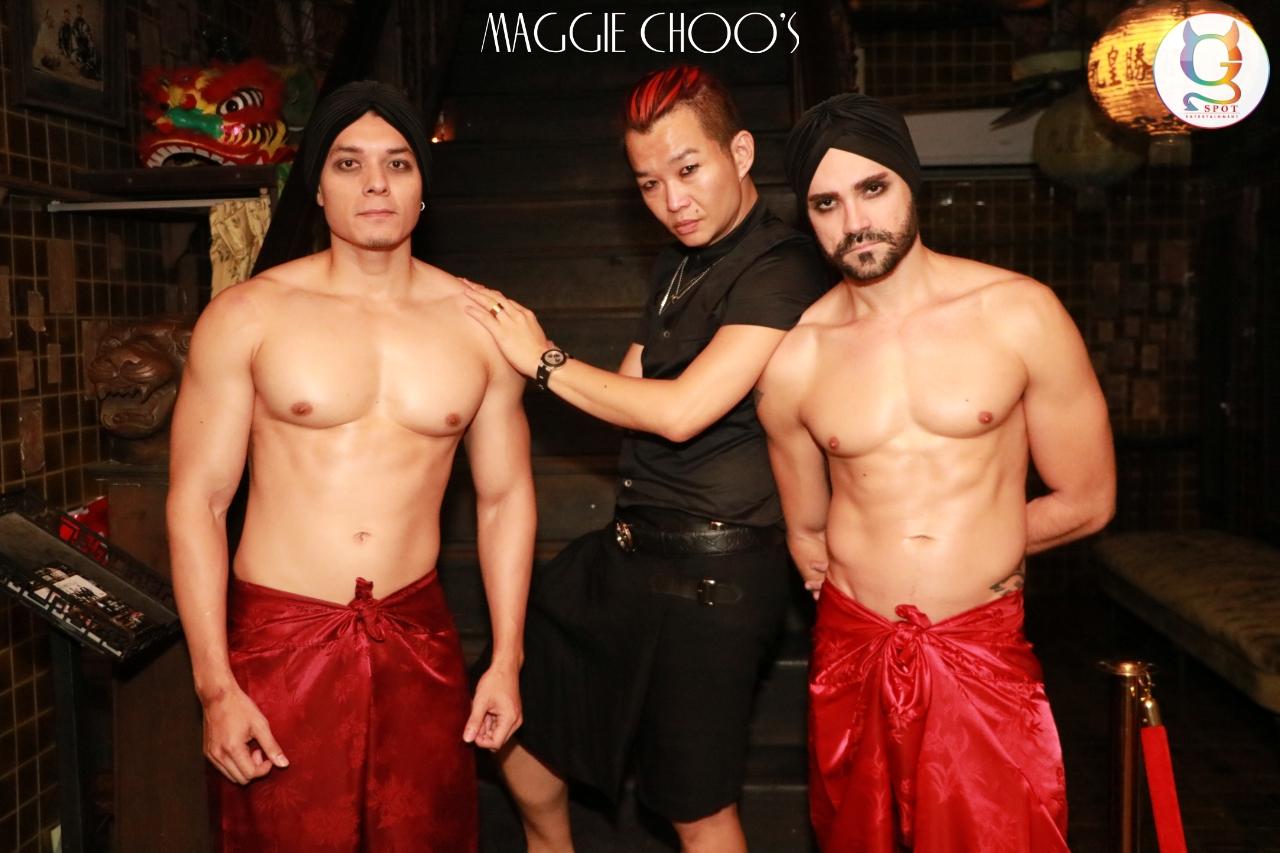After months of lockdown, the Centre for Covid-19 Situation Administration (CCSA) recently gave the green light for all remaining entertainment venues to reopen, following an appeal from musicians and entertainers to allow them to get back to work as the long closure had put many in severe financial straits.
This measure was largely a result of the fact that Thailand has gone almost two months without domestic transmission, only finding new cases in state quarantine among those repatriated from abroad.
Prior to the reopening, operators of nightlife venues had cried foul over a set of proposed regulations to be enforced when the venues resumed business, saying many social-distancing rules would hurt livelihoods. The revised regulations by the government include venues being open until midnight, social distancing of 1m from one another when seated or standing, 4m² of space for one person, not sharing tables with people from different groups, waiters wearing face masks at all times, 2m of distance between tables or a 1.5m-tall shield, providing an air ventilation system, providing smoking space outside and patrons checking in and out using the Thai Chana platform.
While everyone is happy to be back to work, many have mixed feelings not just about the restrictions they will be working under but also the manner with which the government has managed the situation.
In light of the reopening of the entertainment venues, Life sat down with people working in the nightlife industry to discuss how they coped during the height of Covid-19 and their take on state measures.

Deejay Nongluck Kiatratsamee. Dj Honey Gee
Nongluck Kiatratsamee
Occupation: Deejay
Workplace: Insanity nightclub
Before Covid-19, Nongluck's success as one of Thailand's leading female deejays led to invitations to perform from near and far.
Life couldn't have been better for her when the pandemic struck. She found herself in uncharted territory when Thailand began the lockdown process to curtail the spread of the virus. Overnight, she found herself struggling for income as entertainment venues were some of the first ordered to close.
"The tours I planned for this year had all been cancelled, coupled with the fact that I was out of a job when venues were ordered shut. With no income, I was left with little to sustain myself. I have been in this business for a decade and from this, I can say that the Covid-19 situation brought us all to our knees. I was in shock," said Nongluck, whose latest single Swolla was created during the social distancing regulations.
As a professional deejay, Nongluck earns on the day she performs. It is not a monthly income, so she is accustomed to keeping savings for a rainy day.
"On a monthly average, we earn around 25,000 to 30,000 baht. When on tour, one can make US$1,000 (31,660 baht) or more. During this period, I lost 90% of my earnings."
Nongluck is beyond happy the government has reopened Bangkok nightlife venues so that people in this industry can once again earn a livelihood.
In her opinion, the revised regulations for night-entertainment operators are not too stringent. However, she does have an issue with social distancing and wearing a face shield while performing though.
"I feel it would be difficult to wear a face shield while I deejay. I just cannot see it happen. As for social distancing, I think in a bar/club environment this can be a problem, but I suppose we just have to work things out to comply.''
Nongluck believes Thailand is better off than several other countries battling Covid-19 and that the country is more fortunate than those where the public is still not allowed to generate an income for their families due to the pandemic.
"Being able to earn an income feels great, especially after not being able to do so for many months. For me closing at midnight is not a huge issue. I realise the country has to take baby steps when it comes to reopening the Thai nightlife industry, given that the virus can return."
"The point I would like to make is that we can live with the regulations as long as we are allowed to work. Thousands of lives suffered during the shutting down of the entertainment venues. Many are sole breadwinners in their families while others such as migrant workers would have been left in limbo, if this reopening didn't take place."

Gay party organiser Kreangsak Leing, centre. G-Spot Entertainment
Kreangsak Leing
Occupation: Gay party organiser
Workplace: G-Spot Entertainment
Known for organising parties with creative themes, Kreangsak has for six years worked tirelessly to conquer the gay high-end market in Bangkok, raking in rich profits to the tune of seven figures in a good month.
However, without prior warning, all of this changed in the blink of an eye when the Covid-19 pandemic forced the closure of nightlife venues over three months ago. Overnight, thousands found themselves without a job, including Kreangsak.
A self-described hyperactive character with a rags-to-riches story, he found himself at his lowest point in life.
"I was thrown off guard, it would have been easier for me to just have closed shop but I couldn't just throw away the responsibilities. I had to shoulder taking care of my staff who have been with me through thick and thin. As money was barely trickling in, I had to cut their income by half to survive. I believe they realised it was better to have some income than none at all."
"Due to the sudden closure of nightlife venues, people that owed me could not pay me. This made me go in debt of around a million baht, which is why when the applications for the 500-billion-baht soft loan scheme opened for small and medium-sized enterprises affected by the coronavirus, I was thrilled. However, my excitement was short-lived as the banks told me that I needed to have a credit line with them first to be eligible. This made me incensed because I didn't have that."
Kreangsak is convinced that the government has let people like him -- middle-class folks trying to make an honest living -- down in their time of great need.
"It is a good thing that I have always been a fighter because I don't throw in the towel easily. However, weathering Covid-19 was a different ball game altogether. It was an overnight calamity that left me grappling for answers from the government which in my opinion did not address the issues people in the nightlife industry were thrust into. Their relief schemes were more tailored for businesses that would benefit people that could, in turn, be of benefit to them, not SME operators such as me and others. This entire experience has hit me hard not just financially but also emotionally."
Now, Kreangsak is fighting the impact of Covid-19 on his turf. He has started an online perfume business and upgraded his business website to create an edgy attractive feel to it by including events designed solely for the LGBTI community in Bangkok.
To him, the regulations and relief schemes to date have been politically motivated. He said that he would suggest the government to rethink the issue and truly address what is needed for businesses to start generating income for themselves so people can survive in this industry.
"This could start with changing the closing time for nightlife venues from midnight to 2am. These establishments should be allowed to operate fully, given the positive stats of Covid-19 cases.''

Musician Herve Bongela. Courtesy of Musican Herve Slim
Singer/songwriter Herve Bongela
Occupation: CH3 band's lead vocalist
Besides performing at Novotel Bangkok in Phloenchit each night of the week, Bongela's career in the music industry was on a roll when he had to face the ramifications of Covid-19.
Married to a Thai, and with a young daughter, the Congolese artist found himself in the pit of mental anguish when it dawned on him that the pandemic had made him redundant.
"I believe a lot of us were caught off guard and were just not ready to face the ramifications of this virus. Besides looking after my family, I had to think of the well-being of my band members, who have their families in the Philippines and have also been impacted by Covid-19. It was a very surreal experience because, for one, everything was restricted. Not knowing when it would end only added to the desperation and anxiety."
As an expat, he found that the Thai government did a good job in containing the virus and the relief schemes that were created for people like him were delivered. This gave him the confidence and hope that the situation would eventually improve.
In terms of state regulations for nightlife entertainment venues, he said that closing at midnight is probably one thing that should be urgently revised because musicians don't immediately return home after each performance but stay on to mingle with guests. Due to this, he also believes that social distancing can create all sorts of problems.
"Most of us spend a good couple of hours networking with the audience after we complete our work at midnight. It would be more appropriate to go back to 2am given that Covid-19 cases today are only found among people that are already in quarantine."
"Also for me, I feel it would be nice to see the restriction on social distancing be less strict to enable performers and audience to interact better.''

Bar owner Intira Chaipraserdnett. Courtesy of White Rabbit Bar,Silom
Intira Chaipraserdnett
Occupation: Bar owner
Workplace: White Rabbit Bar, Silom
When Covid-19 first came on the scene, Intira was confident the initial two weeks her business was ordered to shut down was a temporary hiccup.
However, when it dragged on for weeks to months, she was left in a daze.
"My daily income took a beating, from averaging around 50,000 baht during my peak days to being left with zero income. Despite this, I had to financially support my staff and pay rent for the business premises."
"It was nightmarish. My staff and I found ourselves hand-to-mouth. Each government relief scheme was so paltry that I found myself drowning in debt. If the government had a mindset of sincerely supporting us, they should have made it mandatory for landlords to waive the rent or have tenants pay 30% of the rent for the months we were closed. This never happened. I was fortunate my building owner waived 50% off the monthly rent."
Yet, Intira decided to search for ways to pull through the crisis. "To survive, I decided to turn my business into a restaurant, adding a food menu so we could open much earlier than other nightlife establishments. I was confident that the government would allow the sale of alcohol in restaurants before bars and clubs."
"From this, we have been generating a couple of thousand a day. While this is not enough to properly sustain ourselves but something is better than nothing."
On the issue of Covid-19 regulations, she vehemently disagrees with the closing time of midnight. She said the extra two hours are often the most lucrative.
"Our main clients are patrons of Silom Soi 2. They arrive after 10pm, so it does not make sense to shut businesses by midnight."
"I will go to any length to comply with the rest of the restrictions, and in fact, have already made sure among other things that our customers abide by social distancing restrictions and remain within the area permitted for them. White Rabbit bar has also refurbished its seating arrangement to comply with government regulations."
Intira couldn't help suppress her anger over the manner with which the government has managed SME business bank loans during Covid-19 and is pleading them to reassess the requirements to better support their request for loans in these trying times.
"The relief schemes are a shame. Even with the discount given for water and electricity, business owners, who had their freezers on to chill their drinks, ended up paying a hefty bill."
